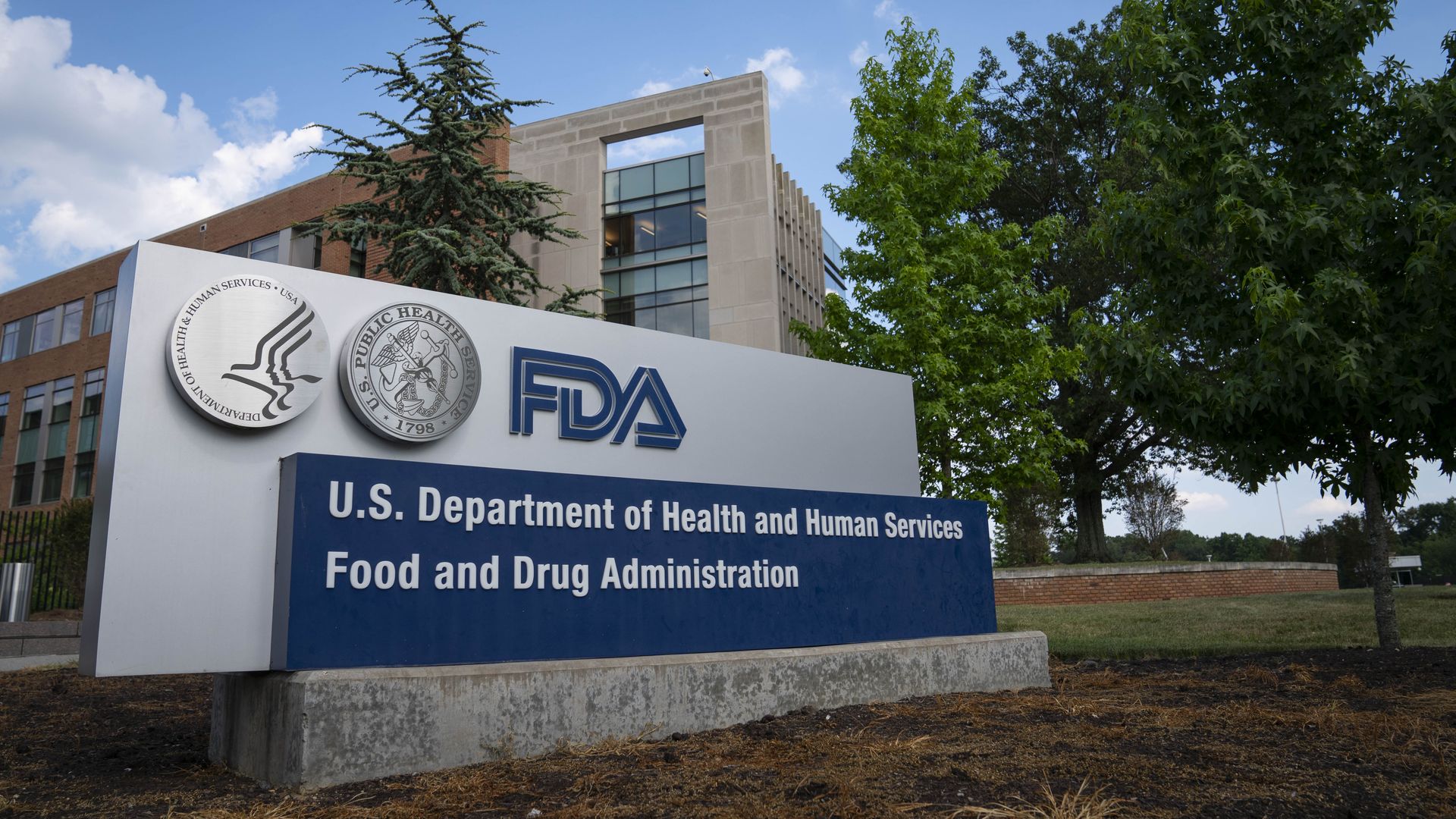Biogen's Alzheimer's drug will test the FDA's reputation
Add Axios as your preferred source to
see more of our stories on Google.

The FDA will make a final decision on aducanumab by March. Photo: Sarah Silbiger/Getty Images
An independent panel of medical experts overwhelmingly said last week there is not enough evidence for the Food and Drug Administration to approve Biogen's experimental Alzheimer's drug, aducanumab.
Why it matters: This is one of the most consequential drug evaluations in years, aside from pending coronavirus vaccines and drugs. The FDA is not required to follow the experts' recommendations, but bucking their advice and siding with Biogen's data-parsing would call into question the agency's standards and motives.
Zoom in: The final votes were not close. A vast majority of the experts said Biogen's one positive study of aducanumab didn't provide "strong" or "primary evidence" that the drug actually worked — especially after considering the drug had failed in a separate clinical trial.
- The votes came a few days after the FDA released a contradictory report in which scientists and statisticians landed on opposite conclusions about whether the drug successfully beat back Alzheimer's.
- The votes also came after three neurologists who specialize in Alzheimer's treatment wrote that the effectiveness of Biogen's Alzheimer's drug "cannot be proven by clinical trials with divergent outcomes."
Between the lines: The FDA will make a final decision by March, and the clinical and financial stakes are enormous.
- Alzheimer's affects more than 5 million Americans, and roughly 2 million of those have a mild version of the disease. There are no treatments that reverse the disease's cognitive decline.
- Aducanumab, an IV medication, is expected to have a price of $50,000 per year. If the drug were approved and if only a fraction of Alzheimer's patients get the drug, Biogen would collect tens of billions of dollars in sales annually — which would easily rank aducanumab as the top-selling drug of all time and would increase the country's health care spending on its own.
The bottom line: Aducanumab currently does not meet the FDA's own standard of requiring two large, successful clinical trials, and many experts have said a third trial is needed for a drug of this importance, even though that comes with extra time and expense.
- The FDA's evaluation process would be viewed as "kabuki theater" if the agency approves the drug despite widespread skepticism of the drug's effectiveness, according to former FDA drug reviewer Erick Turner.
Go deeper: Biogen's Alzheimer's revival meets with skepticism
